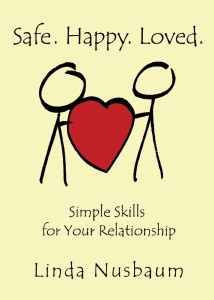Communication in relationships can be tough, because it comes with additional considerations that we don’t face in everyday communication.
By the time we are grown up, almost all of us have figured out how to get what we want in life and how to get things that we don’t like to stop. We usually learn these skills when we are very young, starting with our first empowering word: “NO.”
As an adult we find out partner and then we use these same skills to continue the process of getting what we want and stopping what we don’t want.
Breaking Heavy-Handed Habits for Better Communication in Relationships
But for many couples the habits and skills we bring into a relationship often create difficulty with our beloved. And this can be perplexing to couples. Most of us just don’t understand why we are so good with so many people but with the one that really matters to us we are just not good at all.
As a former journalist, a therapist and a person who is in her mid-life and married, I have worked on my language skills for decades. And it is truly only now that I can say I think I have it mastered. You see when you become artful with your language you never have to worry that you may have angered or hurt another. You are able to speak in such a way that your wants needs and desires, what ever they are, can be heard by your mate and acted on.
The Special Considerations of Communication in Relationships

And that’s really what everyone in relationship wants, to know that they matter to their mate and are listened to by them. So here are some simple guidelines to help give you the art in language skills.
Most of us when we want our mate to stop doing something we often start with these words, “You always leave your socks on the floor. Why don’t you put them in the hamper?”
Avoiding Fights by Sounding Less Accusatory
Clearly the speaker has made his or her point. I get that they are frustrated with the situation and want something different. The problem is that when the listener hears “You” it sounds like an attack. Often this kind of delivery is met with a defense of sorts and sometimes a counter-attack. “I pick them up sometimes. But look what you do; you always leave your papers on the table. Why don’t you pick those up?”
Then there’s a fight and people go to their corners and stay angry until the feelings fade. I have a suggestion on how to get the socks off the floor and the papers off the table. Try asking for it differently.
Gentle Requests &em; Non-confrontational Communication in Relationships

I love to help my husband when he asks me to do something. I hate to do anything when I am accused of not doing something. Think about it in your own life. When your partner asks you to do something from a loving place it’s easy to say yes.
So here’s a way to get what you want:
- Always come from a place of respect toward the one you love.
- Tell them what would make you happy first.
- Then name the behavior you want changed.
So, for example: “Babe, it would make me really happy if I could walk into the room and not find a sock on the floor. Would you please try and remember to put you socks away? Thank you, Honey. It means a lot to me.”
That may sound like a lot of words, but what’s a few more words compared to a fight and bad feelings that can last for hours? Give it a try; you might grow to like the results.
More Tools for More Peaceful Communication in Relationships
Read a Book About Nurturing Your Relationship
Can’t make it on Monday? You can learn more about how to communicate effectively with your partner by reading Linda’s book, Safe. Happy. Loved. Simple Skills for Your Relationship. It can help you fight less, love more, and be happier. Give it a read.


